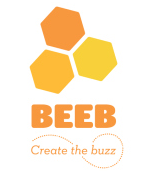The Masters Graduate School of City and Regional Planning at Cardiff School of Planning and Geography will be offering a new Masters of Science degree in Food, Space and Society starting in September 2014. Here are some of the highlights:
“Food is at the forefront of society’s grand challenges”
Food is a unique lens through which one can address key social science questions on resource shortfalls, environmental pressures and social development. A focus on food provides important opportunities to raise questions about the prospects for a more secure, just and sustainable future and to understand the shifting boundaries between the state, the market and civil society.
Special Features
A core feature of the course is its emphasis on research-led teaching. Modules are designed and taught by staff from the Research Centre for Sustainable Urban and Regional Food (SURF), who have a long-standing and world-renowned expertise on conventional and alternative food networks, food consumption practices, the interplay between global and local food systems, community food growing, public food procurement, food justice, animal geographies, and the community food sector. Staff’s engagement in agenda-setting research on these topics ensures that students are exposed to the most recent debates in food studies and are involved with our extensive network of stakeholders.
Suitability
This MSc is suitable for graduates in subjects such as geography, sociology, politics, anthropology , planning and economics, and/or those with appropriate professional experience and qualifications in food. Applicants with a background in other subjects, and relevant work-based experience, will also be considered.
To read more, please visit http://www.cardiff.ac.uk/cplan/study/postgraduate/food-space-and-society-msc





 BEEB, Hives and Local Networks of Empowerment
BEEB, Hives and Local Networks of Empowerment